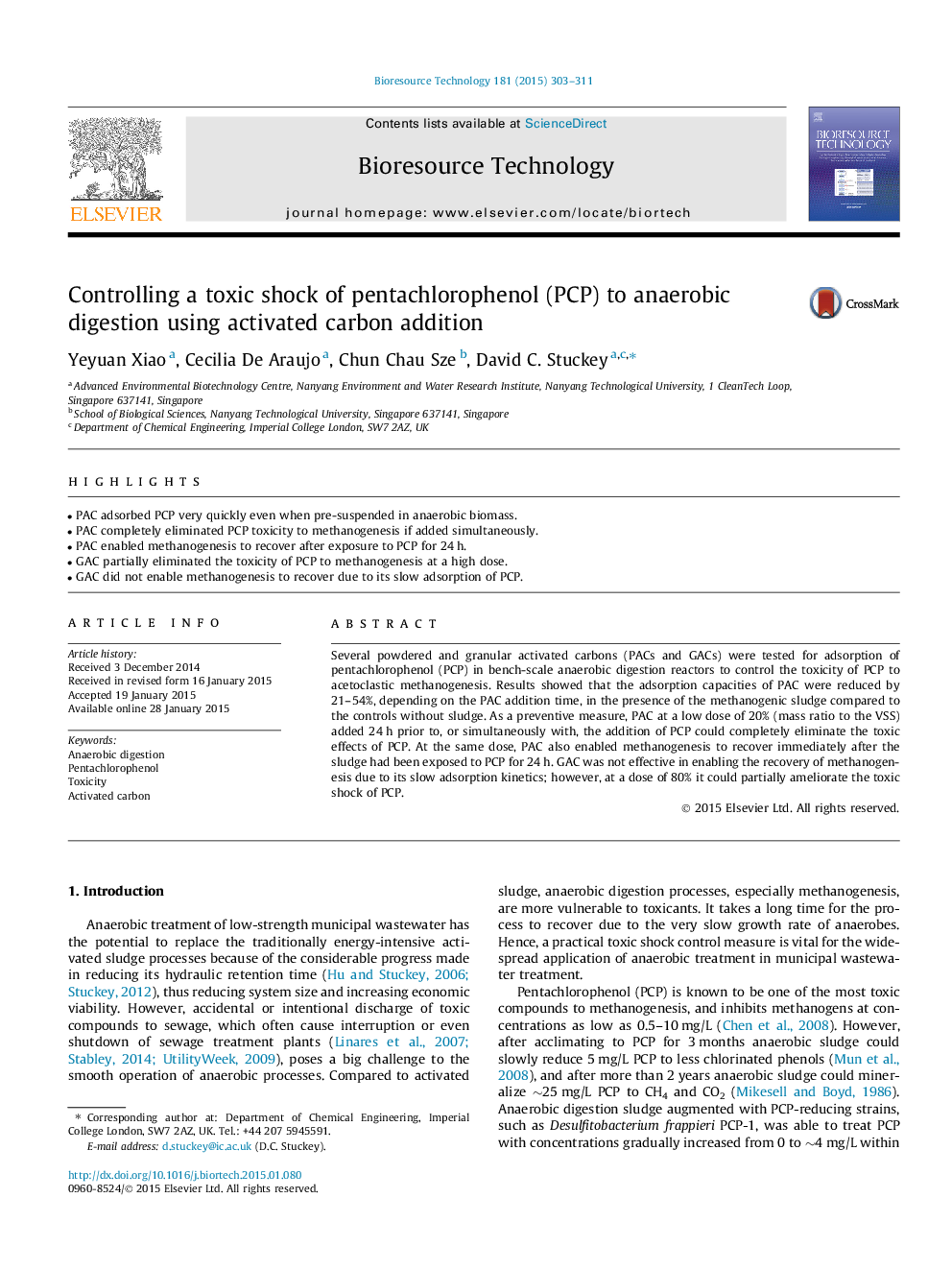| Article ID | Journal | Published Year | Pages | File Type |
|---|---|---|---|---|
| 680073 | Bioresource Technology | 2015 | 9 Pages |
•PAC adsorbed PCP very quickly even when pre-suspended in anaerobic biomass.•PAC completely eliminated PCP toxicity to methanogenesis if added simultaneously.•PAC enabled methanogenesis to recover after exposure to PCP for 24 h.•GAC partially eliminated the toxicity of PCP to methanogenesis at a high dose.•GAC did not enable methanogenesis to recover due to its slow adsorption of PCP.
Several powdered and granular activated carbons (PACs and GACs) were tested for adsorption of pentachlorophenol (PCP) in bench-scale anaerobic digestion reactors to control the toxicity of PCP to acetoclastic methanogenesis. Results showed that the adsorption capacities of PAC were reduced by 21–54%, depending on the PAC addition time, in the presence of the methanogenic sludge compared to the controls without sludge. As a preventive measure, PAC at a low dose of 20% (mass ratio to the VSS) added 24 h prior to, or simultaneously with, the addition of PCP could completely eliminate the toxic effects of PCP. At the same dose, PAC also enabled methanogenesis to recover immediately after the sludge had been exposed to PCP for 24 h. GAC was not effective in enabling the recovery of methanogenesis due to its slow adsorption kinetics; however, at a dose of 80% it could partially ameliorate the toxic shock of PCP.
